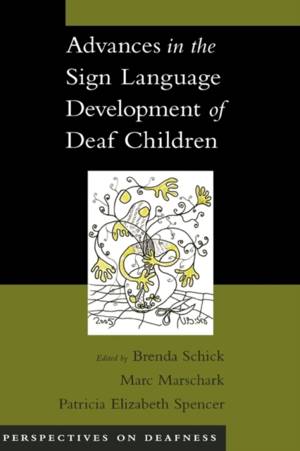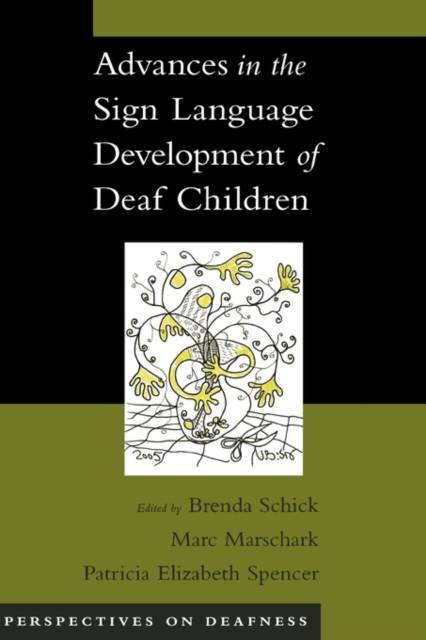
Bedankt voor het vertrouwen het afgelopen jaar! Om jou te bedanken bieden we GRATIS verzending (in België) aan op alles gedurende de hele maand januari.
- Afhalen na 1 uur in een winkel met voorraad
- In januari gratis thuislevering in België
- Ruim aanbod met 7 miljoen producten
Bedankt voor het vertrouwen het afgelopen jaar! Om jou te bedanken bieden we GRATIS verzending (in België) aan op alles gedurende de hele maand januari.
- Afhalen na 1 uur in een winkel met voorraad
- In januari gratis thuislevering in België
- Ruim aanbod met 7 miljoen producten
Zoeken
Omschrijving
The use of sign language has a long history. Indeed, humans' first languages may have been expressed through sign. Sign languages have been found around the world, even in communities without access to formal education. In addition to serving as a primary means of communication for Deaf communities, sign languages have become one of hearing students' most popular choices for second-language study. Sign languages are now accepted as complex and complete languages that are the linguistic equals of spoken languages. Sign-language research is a relatively young field, having begun fewer than 50 years ago. Since then, interest in the field has blossomed and research has become much more rigorous as demand for empirically verifiable results have increased. In the same way that cross-linguistic research has led to a better understanding of how language affects development, cross-modal research has led to a better understanding of how language is acquired. It has also provided valuable evidence on the cognitive and social development of both deaf and hearing children, excellent theoretical insights into how the human brain acquires and structures sign and spoken languages, and important information on how to promote the development of deaf children. This volume brings together the leading scholars on the acquisition and development of sign languages to present the latest theory and research on these topics. They address theoretical as well as applied questions and provide cogent summaries of what is known about early gestural development, interactive processes adapted to visual communication, linguisic structures, modality effects, and semantic, syntactic, and pragmatic development in sign.
Along with its companion volume, Advances in the Spoken Language Development of Deaf and Hard-of Hearing Children, this book will provide a deep and broad picture about what is known about deaf children's language development in a variety of situations and contexts. From this base of information, progress in research and its application will accelerate, and barriers to deaf children's full participation in the world around them will continue to be overcome.
Along with its companion volume, Advances in the Spoken Language Development of Deaf and Hard-of Hearing Children, this book will provide a deep and broad picture about what is known about deaf children's language development in a variety of situations and contexts. From this base of information, progress in research and its application will accelerate, and barriers to deaf children's full participation in the world around them will continue to be overcome.
Specificaties
Betrokkenen
- Auteur(s):
- Uitgeverij:
Inhoud
- Aantal bladzijden:
- 412
- Taal:
- Engels
- Reeks:
Eigenschappen
- Productcode (EAN):
- 9780195180947
- Verschijningsdatum:
- 2/09/2005
- Uitvoering:
- Hardcover
- Formaat:
- Genaaid
- Afmetingen:
- 169 mm x 241 mm
- Gewicht:
- 725 g

Alleen bij Standaard Boekhandel
+ 294 punten op je klantenkaart van Standaard Boekhandel
Beoordelingen
We publiceren alleen reviews die voldoen aan de voorwaarden voor reviews. Bekijk onze voorwaarden voor reviews.









